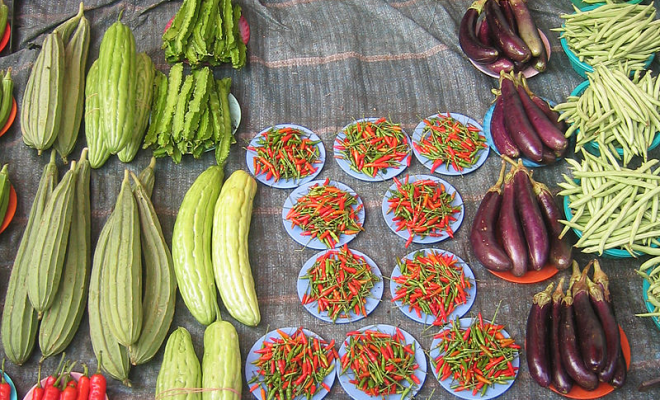Rishabh Chokhani
As the world deals with a global pandemic, Covid-19, we are forced to introspect our choices and make amends to save our future generations from re-occurrence of another pandemic. This situation has led the entire human race to contemplate the best ways to ensure optimal utilization of resources while adopting sustainable ways of living.
Over the last couple of months, health experts and industry leaders have been discussing the role of our food choices in mitigating another pandemic. The pandemic has witnessed a paradigm shift in the consumer preference towards organic and natural food. Typically, organic food is produced without using synthetic chemicals such as pesticides, fertilizers, and hazardous chemicals. Because of its low exposure to nitrates and pesticide residues, organic produce is a rich source of nutrients such as vitamins, antioxidants, minerals, iron, carotenoids, magnesium, and phosphorus.
As the world battles this pandemic, many are adopting the organic way of living. This awareness towards healthy food choices and change in lifestyle is contributing hugely towards the growth of the organic food market. According to Pure & Eco India, the global organic food industry has witnessed a robust growth of 25-100% during the pandemic. This is because the general sentiment towards this disease is the fallacy of living out of tune with nature that is being exposed in the most brutal manner.
Research organisation, Ecovia Intelligence cites that the demand for organic products and foods will rise in a post COVID world. This comes after witnessing a similar trend in the past. In 2000, the demand for organic food increased in Europe after BSE crisis. China saw a surge in demand in 2004 after SARS outbreak. Similarly, with COVID changing the attitude of people towards adopting the sustainable way of food intake, the global organic industry can grow to USD 50 Billion in the next five years.
Since living in tune with nature and utilizing the resources mindfully is the anticipated way of living ahead, growing food organically offers more advantages. Organic food reduces soil erosion, pollution, increases soil fertility, conserves groundwater and lowers the combustion of energy.
However, many farmers hesitate to adopt organic farming because for the higher cost for raw material acquisition such as organic fertilizers, seeds etc. and longer lead time. Therefore, according to a story in Fortune India, the organic food cultivation makes up only 2.59% or 1.5 million hectares of the total global organic cultivation area of 57.8 million hectares. The size of the Indian organic food market remains relatively small, at around $1.5 billion of the approximately $250 billion global organic food market. The cultivation of organic agriculture is growing around the world, rising to 50.9 million hectares in 2015 from around 11 million hectares in 1999.
Though unorganised, estimates suggest that Indian organic agriculture is growing at 25% a year. The World Organic Agriculture report of 2018 notes that a third of all organic food producers in the world live and cultivate in India. This puts India in a great position to increase its organic yield for domestic as well as export needs. A few Indian states like Sikkim have taken the lead in converting their entire produce to organic cultivation.
Despite some short-term challenges of supply during the lockdown, the industry will surely boost in the coming years. A switch to healthier life choices in the form of organic food will benefit the organic food market in India by rising demand and motivate more farmers to adopt organic ways of farming. This pandemic has certainly taught our race to live sustainably and in tune with nature.
Rishabh Chokhani is Founder, Naturevibe Botanicals
(Views expressed by author are personal)
Lessons from COVID-19: Time to wake up and embrace sustainable lifestyle

